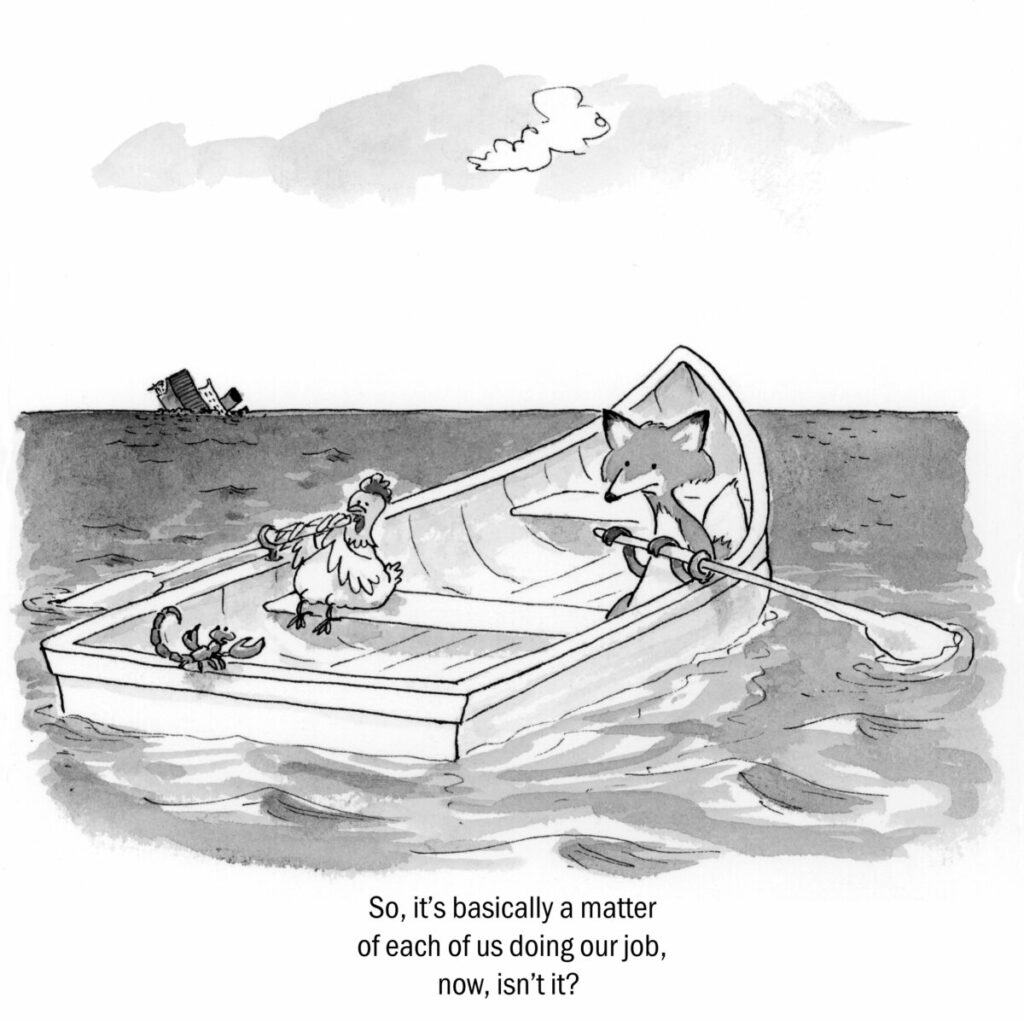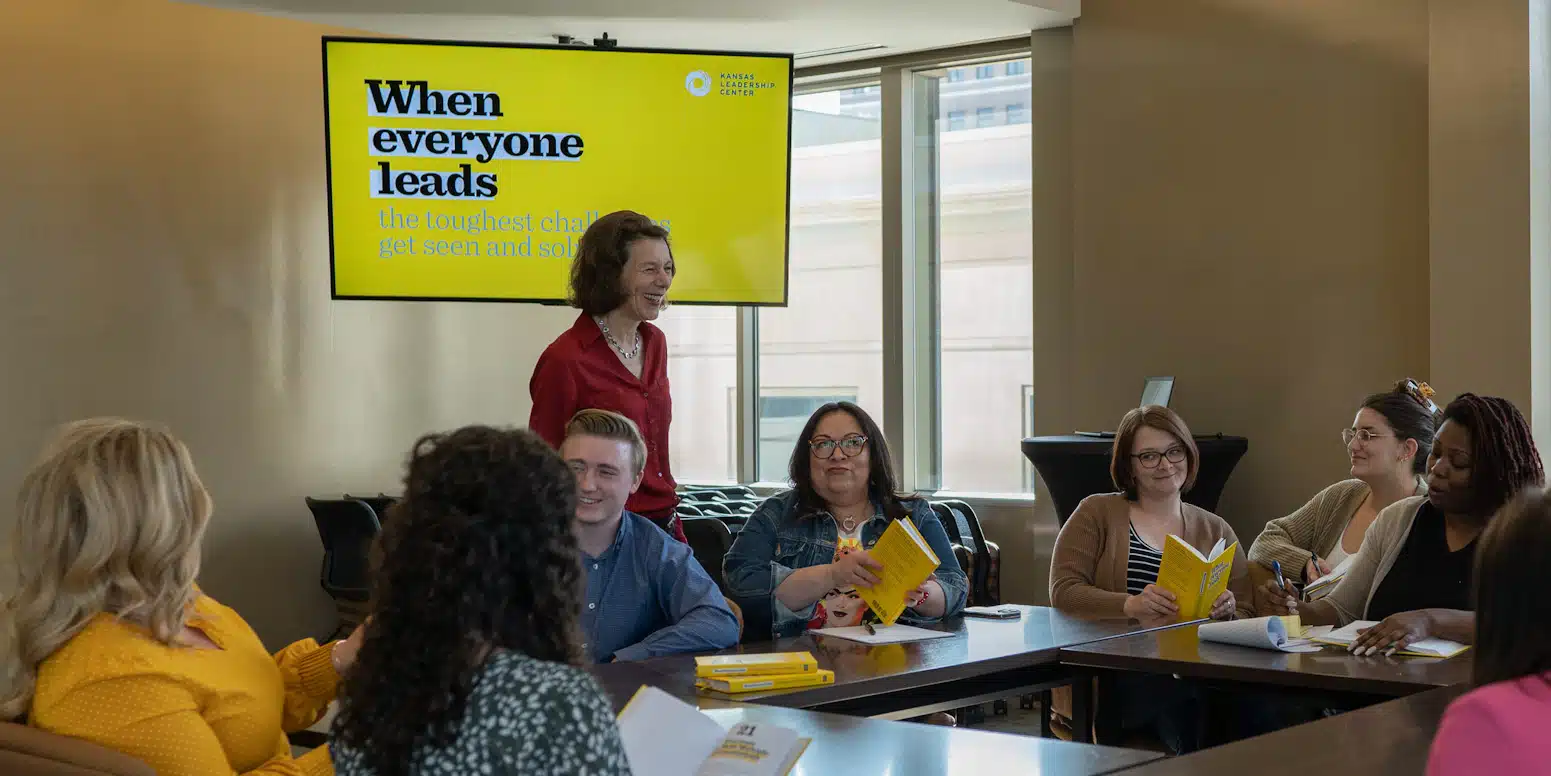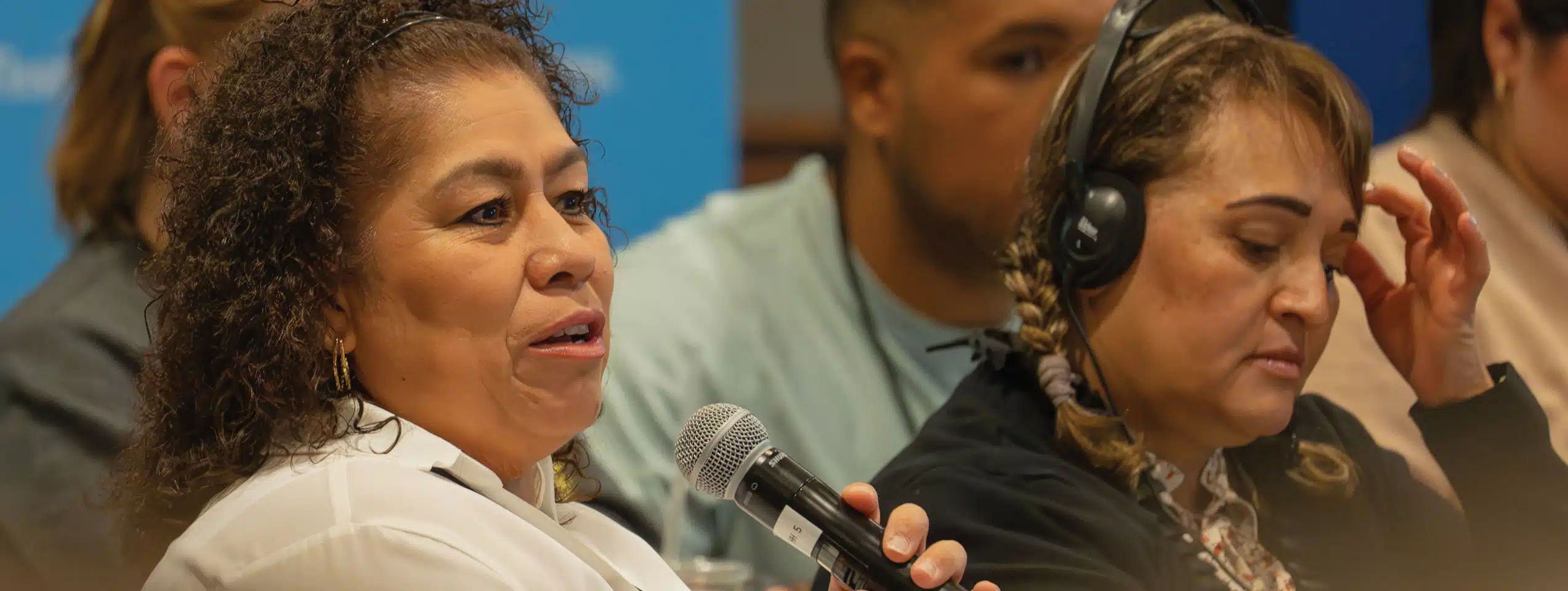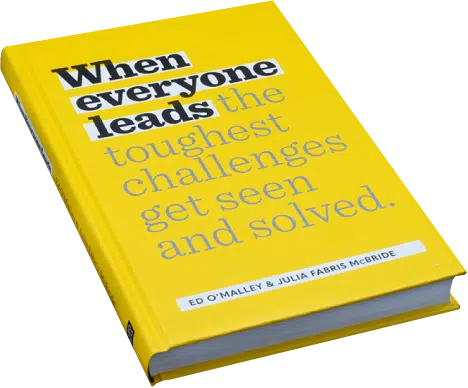Better relationships and increased trust can be satisfying outcomes of good leadership. But more important than strengthening bonds between people is designing trustworthy processes for getting work done.
Everyone shares some responsibility for process. For instance, even people with no formal authority can intervene to make sure an important voice gets included or a disruptive idea gets a hearing in their group. Everyone can do something, however small, to improve a process once it is underway.

But the process we use to attempt to collaborate and make progress on our most important challenges require careful design. We need processes for engaging key stakeholders that are trustworthy, transparent, inclusive, and flexible enough to keeps things moving and to realign when a group gets too far off track.
While everyone can have a stake in a challenge, some leadership moves work best at the hands of those with power to influence how other people spend their time. Creating a trustworthy process is one of those moves.
The Collaborative Premise: Powerful Assumptions About Process
David Chrislip (author, mentor, and super-facilitator) introduced KLC to the Collaborative Premise. A premise is an assumption or argument from which follows an inevitable conclusion. It’s an “if/then” statement. The Collaborative Premise is: If you have the right people, good information and a healthy process, then you will get good results. Every time. That’s right. Every time.
When someone in authority fully commits to the Collaborative Premise, they virtually guarantee that their group will get and stay in the productive zone long enough to make significant progress on a shared challenge. In David’s words, “If you bring the right people together in constructive ways with good information, they will create authentic visions and strategies to address the shared concerns of their organization or community.”
Here’s the Collaborative Premise again as an equation:
The Right People
X
Good Information
X
Trustworthy Process
=
Positive Results
Notice we use multiplication rather than addition. In multiplication, if one of those variables is a zero, then the solution to the equation is always zero. To get great results when you attempt to make progress on a tough challenge, you need the right people, good information and a trustworthy process. If one’s missing, it won’t work.
People in authority are the ones most likely to have the power to ensure that each of those variables is present. But do they use it? If you are in a position with some authority, are you using it? If you want to, here are some things to think about.
The Right People
For fruitful collaboration we need enough of the right people devoting time and energy to the challenge. There is no perfect number of people, just enough to reflect the full range of perspectives on the problem and its complexities.
It’s easy to go wrong here. Most of us crave comfort and certainty. And most of us have a go-to crew. Those are the people we depend on and usually their opinions resemble our own. All that is fine for minor problems or mostly technical challenges. But our toughest challenges require a different approach. We need to bring in people who don’t think like us. We need a mix of people who don’t think like one another. We need people whose willingness to be in a room or online meeting together carries some heat and opens the door to generative controversy.
Remember the principle: leadership is risky. The perils that come with choosing to exercise leadership can cause us to hedge our bets, to choose comfort over the heat fuels change. You may find yourself inviting your usual people to collaborate, rather than those who will challenge you to learn, grow and adapt to your changing environment. But if you invite only your usual people, you will get the usual, unsatisfactory results.
Good Information
The second variable in the Collaborative Premise is good information. Bring the right people together and give them good information that everyone can trust, and you are two thirds of the way toward a productive collaboration that will yield positive results.
Scientists spend lots of time in diagnosis. They collect data and make observations. Only after collecting enough quality data do they begin to make interpretations. They know there is a connection between the quantity and quality of data and the validity of their interpretations. We need to think and act like scientists.
If you have authority, make sure good data gets collected, analyzed and shared. For the Collaborative Premise to work, it’s critical that all involved in the collaboration have confidence in the information being used as a foundation for their work. You may need to collect new data. You probably can’t rely on your favorite research paper that supports your point of view. It might mean that the group needs to go through the data together to discuss its finer points and decide what are facts they can all agree on. Getting everyone to confirm the facts and accept a data set will take time. When working across factions, “good” can’t be subjective.
Good information is not just important in civic life but also in companies and organizations. It’s essential when staff members seek to collaborate across departments and reporting levels to navigate a system-wide change to the way you do business. Good information leads to better decisions. But, leading up to that, merely getting diverse factions to accept the same data is a win.
A Trustworthy Process
As you use your authority to generate productive heat, pay close attention to this third variable, trustworthy process. This may be trickiest of the three variables. Success requires purposeful choices both in planning and implementation of cross-faction collaboration. Whole books are written about how to create healthy processes for difficult work. See Safhi Bahal’s Loonshots: How to Nurture the Crazy Ideas That Win Wars, Cure Diseases, and Transform Industries or Adam Kahane’s Facilitating Breakthrough.
Tips for Creators of Trustworthy Processes
The processes you design to make progress on your most important challenges may take months to unfold or happen over the course of a couple of days. Whatever approach you take, here are some things to keep in mind:
- Keep purpose front and center. Consistently remind people about the reason for the work. Exercise leadership to inspire a collective purpose. But think carefully before you broaden or adjust the orienting purpose for the collaboration.
- Have someone design and facilitate who is more loyal to a healthy, trustworthy process than to any particular outcome. You want someone who doesn’t shy away from heat and can orchestrate interactions that keep things simmering but don’t get so hot that people get burned.
- Go toward conflict rather than away from it. Often process facilitation helps a group make decisions easier and faster. That’s not what we are talking about here. Facilitation needs to illuminate differences of opinions and help groups confront and make decisions about which underlying values to prioritize.
- Give the group time to move into and out of the productive zone multiple times. The goal is to uncover new ways forward, knowing that the old approaches won’t work. Think in terms of a series of half-days or full-day engagements where a skilled facilitator can make sure the heat gets high enough to generate good controversy. Make sure people have time within each meeting to self-regulate, build new connections with people who think differently about the challenge, and leave feeling they’ve accomplished something (though maybe not everything) together.
- Agendas and time boundaries help keep the heat productive. Participants are more likely to be able to deal with the uncertainty of working with people who see the world (and the challenge) differently than they do, if they have certainty around start and end times for meetings, and timing of breaks. Give them as much information about the process as you can in advance, for instance purpose, objectives for sessions and names of facilitators.
- If you have authority, use it to stimulate open and exploratory conversation. You want discovery, not debate. Your goal is to bring the right people together, with good information in a healthy process to discern the best ways forward. Even if you hire an outside facilitator there is a role for you at every juncture – during process design, facilitation and even during implementation of any experiments or potential solutions that result – to remind people to stay open to new ideas and seize every opportunity to be curious about what others are seeing and feeling. You may need to privately coach group members to hold steady and listen, to speak up and share their dissenting opinion, to ask authentically curious questions, or to make their points succinctly and leave room for other voices. Work hard to model those behaviors yourself.
The right people energize and provoke one another. Good information creates the foundation for discussion and discovery. A carefully designed, trustworthy process creates the container for people to collaborate, do difficult work and thrive.


